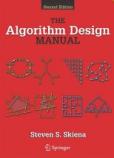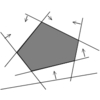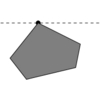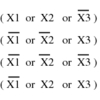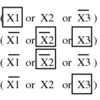CAP -- Contig Assembly Program
OPBDP is an implementation in C++ of an implicit enumeration for solving
(non)linear 0-1 (or pseudo-Boolen) optimization problems with integer
coefficients. A Technical report desribing the techniques used in opbdp is
included. Logic-based methods for modelling and solving combinatorial problems
have recently started to play a significant role in both theory and
practice. The application of logic to combinatorial problems has a
dual aspect. On one hand, constraint logic programming allows
one to declaratively model combinatorial problems over an appropriate
constraint domain, the problems then being solved by a corresponding
constraint solver. Besides being a high-level declarative interface to
the constraint solver, the logic programming language allows one also
to implement those subproblems that cannot be naturally expressed with
constraints. On the other hand, logic-based methods can be used as a
constraint solving technique within a constraint solver for
combinatorial problems modelled as 0-1 integer programs.
Download Files (local site)OPBDP - A Davis-Putnam Based Enumeration Algorithm for Linear Pseudo-Boolea
Problem Links
This page last modified on 2008-07-10
.
www.algorist.com

